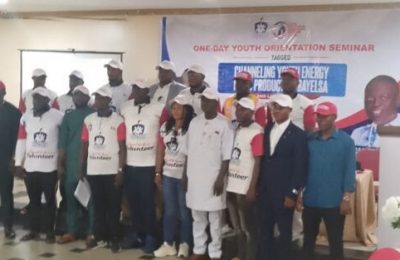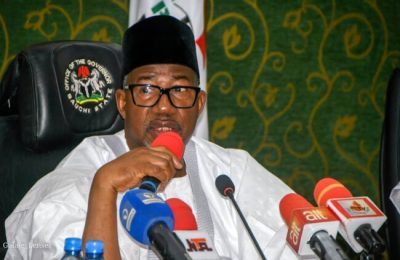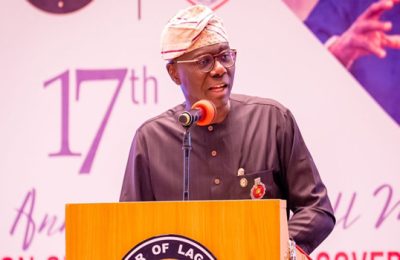
HAKEEM GBADAMOSI and WALE AKINSELURE write on the steps so far taken by the Federal Government against the backdrop of the threat by some youths to embark on protest over economic issues from August 1.
THESE days, talks in the North, South, East and West centre on the planned youth protest against the state of the nation. The country is the spotlight of the international community over how all the stakeholders in the Nigerian project resolve what some in the official circle dubbed a family affair that must be handled with an utmost show of national interest and conviviality.

There has been much display of passion by the stakeholders, particularly on the part of government and well-meaning individuals on the planned protest, with virtually all the senior citizens cutting across the board, calling for dialogue and understanding on the demands of the promoters of the protest, expected to begin tomorrow (August 1).
For the first time in recent times, traditional rulers and leaders of thought from the entire country spoke in unison on the need to avoid any form of action capable of further rocking the boat. Their intervention comes against the backdrop of the fragile state of security, food crisis, inflation, among other issues that have slowed down Nigeria’s desperate search for socio-economic and political rebirth.
In spite of the troubleshooting mission embarked on by those leaders outside the corridors of power, there is pervasive suspense on how the government dispenses its fresh douse of measures designed to further bring succour to the citizens on most of the issues that triggered the threat of the planned protest. Signs that the youth had made their point known to the authorities in an unambiguous term was first underscored by the Minister of Information and National orientation, Mohammed Idris. He confirmed that President Bola Tinubu had listened to the demands of the people and was already working on measures to tackle their grievances pronto. The president still underscored the promise, just as other top functionaries in his administration reinforced the decision of the government to walk the talk even beyond the demands of those behind the planned 10-day protest.
Some of the programme of action initiated by the Federal Government in the last couple of weeks included the allocation of 20 trucks of grains to each of the 36 states for distribution to members of the public. Some governors confirmed receiving the consignments and have since being doing the needful. The government went further on Monday by announcing that it was creating point of sale for bagged rice at a subsidized rate of N50,000 per bag across the country.
In the midst of the raging issues over the planned protest, the National Assembly cut short its recess to join the search for compromise on the contentious issues relating to the crisis. Some senators and members of the House of Representatives had individually tried to proffer amicable solution to the problem. Both the president of the Senate, Godwill Akpabio and the Speaker of the House, Honourable Tajudeen Abass made separate interventions, which led to the National Assembly to summon an emergency plenary.
Concerns of stakeholders
Apparently, there is rising serious concern about the negative consequences of such protests coming up at this auspicious time in the history of the country. With the country still writhing in the fallouts of the 2020 #EndSARs protest that was infiltrated by undesirable elements, most stakeholders in the country are advising the youth to sheath their sword by giving the government more time to address the issues that have evoked anger. Some pro-democracy and rights organisations, as well as workers and student unions, have agreed to toe the line of the other critical stakeholders on dialogue. Students under the National Association of Nigerian Students (NANS) and members of the national Union of Road Transport Workers (NURTW) have joined the fray because of what they considered as the imperative of peace and stability in the country since the common people usually suffered most in the event of disruption and dislocation in the scheme of things.
Similarly, the Civil Society Coalition on Good Governance pleaded that the Tinubu administration should be given at least two years before subjecting its policies for possible scrutiny. The coordinator of the group, Adedotun Ajulo, advised the youth behind the planned protest to explore “more discreet means of passing the demands and ensuring they are met than hitting the street for a protest we all may later regret. We strongly hold that the right to protest is that of every citizens of this country and no one should attempt to subdue people’s voices whenever they chose to cry out about how they are been governed or misgoverned.
“The state of affairs in Nigeria over years is worrisome and people have a right to voice their disapproval as guaranteed by the constitution of the Federal Republic of Nigeria for freedom of association, gathering and affiliations. We condemn threats by security agencies, groups and political office holders against any form of protest. Our democracy, as presently enjoyed, was borne out of agitation and protests and if there is any component of democracy that is germane, it is that of freedom.”
The position of the group is shared by the Liberty Movement of Nigeria (LMN). It wants Nigerians to be patient with the administration of President Tinubu. Convener of the civil rights group, Olusola Ajayi Edward, hinged his stance on the possibility of some agents undermining the good intention of those planning the protest. He said: “Dialogue is often the best way out of social discontent. At the end of any war, people will still sit around the table for discussions to end hostilities. So, why not avoid the war and initiate discussions to prevent a breakdown of peace, law and order? Jaw-jaw is always better than war-war.” According to him, the way the President personally mediated to peacefully end the minimum wage crisis with the organised labour showcases him as a leader who did not take Nigerians for granted. “The English would tell you that things will get worse before they get better,” Edward said. “The fruits of President Tinubu’s bold economic and political reforms will begin to show with time; that we are confident of. The harder the battle, the sweeter the victory. We appeal to the organisers of the protest to sheath their sword, join government to build a stronger nation and propel Nigeria into the superpower that it is destined to be as the largest Black nation in the world.”
A former deputy governor of Oyo State, Iyiola Oladokun urged the youth to rest their case and allow the Tinubu administration implement his policies for the betterment of the people. Oladokun said: “It’s time for sober reflection on our country We have so many agents of distractions and destructions in our midst. Now, our youths should also listen to the voice of reason from our traditional rulers, religious leaders and leaders of various patriotic interest groups and not allow themselves to be used by people with ulterior motives who, among other things, want to get what they desperately coveted but couldn’t get through the ballot box. The bitter experiences of the #EndSARS is still very fresh in our memory, where those who call out our youths could be of no help when the protest was hijacked by those who don’t wish our dear country well. They should rest their cases and allow the government to implement it’s various intervention policies so that our dear country can achieve the goals we are all advocating for. The planned protest can never bring anything good in Nigeria. It’s time to rethink properly. They need our preaching, counselling, and prayers all the time, especially now when their attentions have been captured by the lovers of chaos propagating protests and Demonstrations. I think it’s the responsibility of all genuine leaders irrespective of religious affiliations and political leanings to shout out to our youths and masses.
“We have always had protests in our country. We had Ali must go in the 70s, June 12th debacle in the 90s, Endsars Protest of 2020s, and many untagged protests.
“It has always been a way by the youths and the masses to re-jig their grievances on one thing or the other. There will always be grievances. Even in advanced countries of the word. Therefore, the need will always arise for protest.
“But have we ever asked ourselves if these protests always brought the desired goals? It’s like we are exhibiting signs of lack of interest in the assessment of shortcomings in whatever we do in Africa and particularly in Nigeria. We have all seen that the end results of protests have always been greater disaster. Lives would be lost, Property destroyed, wastages will manifest, future of most of our youths destroyed. For how long shall we continue in these wastages and destructions? It’s time we valued more the lives of our future assets (our youths) and start influencing our masses to be more productive in embracing dialogue to solve our problems instead of protests for destructions.”
Members of the Campaign for Democracy (CD) and the Conference of Nigeria Civil Rights Activists, (CNCRA) cautioned against the planned protest. The CD and CNCRA groups led by their chairmen, Nesta Taiwo and Raphael Dada respectively, agreed with the organisers of the protest that things are not easy economically in the country following the removal of fuel subsidy, but that the situation can only be salvaged through dialogue. The groups, which also recognised peaceful protest as a positive tool for dispute resolution, said the demand of the protesters for economic and political reforms to tackle the rising cost of living is still within their rights as enshirned in the nation’s constitution and the United Nations Declaration on Human Rights. The groups however, stated that: “It is not in our practice to engage the establishment in protest without due consultation and dialogue with the government.”
READ ALSO: Shelve planned protest, Yoruba Diaspora group tells Nigerians







